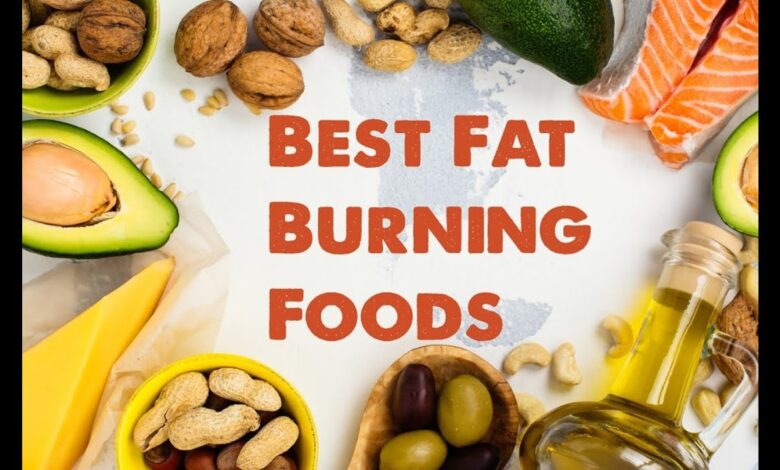
Best Fat Burning Foods for Men — Ultimate Guide to Boost Metabolism & Lose Belly Fat Fast
If you’re a man trying to lose stubborn belly fat and ramp up your metabolism, you’ve probably heard countless tips, tricks, and diet fads. The truth? Fat loss isn’t just about cutting calories or sweating it out at the gym. What you eat can make or break your fat burning progress. Men’s bodies are unique — thanks to hormonal factors like testosterone — and respond best to certain nutrient-rich, metabolism-boosting foods. This guide unpacks the best fat burning foods for men, explains how they work, and offers practical ways to add them to your meals for faster, sustainable fat loss. Ready to feel energized, shred belly fat, and keep your muscle? Let’s dive in.
Why Fat Burning Foods Matter for Men
Men often struggle with stubborn fat pockets, especially around the belly, due to hormonal and metabolic factors. While calorie control is important, the quality of calories you consume is even more crucial. Certain foods can help boost your metabolism — the rate at which your body burns calories — leading to faster fat loss. They also support healthy testosterone levels and preserve muscle mass, which is vital because muscle burns more calories even at rest. Eating fat burning foods helps men avoid muscle loss during weight loss and improves energy levels. Unlike crash diets that leave you drained and hungry, incorporating these foods promotes fullness and sustained fat burning, making weight loss more enjoyable and sustainable in the long run.
Understanding Fat Burning: How Foods Affect Your Metabolism
Metabolism is simply the chemical process your body uses to convert food into energy. But not all foods are created equal in how much energy they require to digest. This is where the Thermic Effect of Food (TEF) comes in — it’s the number of calories your body uses to digest, absorb, and process nutrients. Protein-rich foods have the highest TEF, meaning your body burns more calories breaking down protein than carbs or fat. Spicy foods, thanks to capsaicin, temporarily rev up metabolism and fat oxidation. Combining the right macronutrients — lean proteins, healthy fats, and fiber-rich carbs — can create a metabolic environment where your body burns fat efficiently while preserving muscle. This makes understanding food choices essential for any man aiming to lose fat healthily.
Top 10 Best Fat Burning Foods for Men
Green Tea: Nature’s Metabolism Booster
Green tea is a staple in the fat loss world for good reason. Its catechins, particularly EGCG, have been scientifically proven to boost metabolism and increase fat oxidation. Studies show that drinking 2–3 cups daily can enhance calorie burn by up to 4%. It’s especially effective during exercise, helping the body utilize fat for fuel. Plus, green tea provides a mild caffeine boost without the jitters of coffee, making it an excellent pre-workout drink or daily pick-me-up. Drinking green tea regularly supports fat loss and offers antioxidants that protect against inflammation and oxidative stress — two factors linked to obesity. Swap your sugary drinks for green tea to start feeling lighter and more energetic.
Lean Protein: Chicken Breast, Turkey & More
Protein is the cornerstone of any fat loss diet. Lean meats like chicken breast, turkey, and lean cuts of beef provide high-quality protein with minimal saturated fat. Why is protein so important? Because it preserves and builds muscle, which directly impacts your resting metabolic rate — the calories your body burns at rest. Additionally, protein has a higher thermic effect than fats or carbs, meaning your body uses more energy digesting it. For men, this helps maintain testosterone and supports fat oxidation. Incorporating lean protein at every meal also keeps you full longer, reducing the urge to snack on unhealthy foods. Aim for a palm-sized portion of lean protein with each meal to optimize fat burning and muscle preservation.
Chili Peppers: Spice Up Your Fat Loss
Capsaicin, the compound responsible for the spicy kick in chili peppers, has some fascinating fat-burning properties. Research shows that capsaicin can temporarily increase metabolic rate and enhance fat oxidation. Eating spicy foods also reduces appetite and helps you consume fewer calories overall. This thermogenic effect means your body burns more calories even at rest after eating spicy meals. Adding chili peppers to your dishes is an easy way to boost your metabolism without extra effort. Whether sprinkled on eggs, added to stir-fries, or included in sauces, chili peppers bring flavor and fat-burning benefits to your plate. Just start slow if you’re not used to spicy food and gradually increase the heat.
Eggs: Nutrient-Packed Fat Fighters
Eggs are a powerhouse food packed with protein, healthy fats, and essential nutrients like choline, which supports fat metabolism. Eating eggs for breakfast is proven to increase satiety and reduce calorie intake throughout the day, which helps with weight loss. Their balanced nutrients stabilize blood sugar and reduce cravings, making fat burning easier. Men benefit particularly from eggs because the cholesterol and healthy fats support testosterone production, which plays a key role in fat metabolism and muscle growth. Boiled, scrambled, or poached, eggs are versatile, affordable, and easy to prepare — perfect for any fat loss meal plan.
Greek Yogurt: Probiotics and Protein Combo
Greek yogurt offers a double whammy for fat loss: it’s rich in protein and packed with probiotics. Protein helps maintain muscle mass and increases the thermic effect of food, while probiotics improve gut health. A healthy gut microbiome is linked to better weight management and reduced inflammation. The creamy texture and tangy taste make Greek yogurt a satisfying snack or breakfast option. Choose plain, unsweetened varieties to avoid added sugars that hinder fat loss. Mix in fresh berries or nuts for an extra fiber and antioxidant boost, making it a delicious way to keep your metabolism humming and hunger at bay.
Coffee: Caffeine and Fat Oxidation
Coffee is more than just a morning ritual — it’s a fat-burning ally. The caffeine in coffee stimulates the central nervous system, increasing metabolic rate and promoting fat oxidation, especially during exercise. Drinking black coffee before workouts can improve endurance and performance, allowing you to burn more calories. It also suppresses appetite temporarily, which can reduce calorie intake. However, avoid adding sugar and high-calorie creamers, as these can sabotage your fat loss efforts. Aim for 1–3 cups daily to harness coffee’s fat-burning effects safely.
Berries: Antioxidants for Belly Fat Reduction
Berries like blueberries, raspberries, and strawberries are low in calories but high in fiber and antioxidants. Fiber slows digestion and stabilizes blood sugar, preventing insulin spikes that promote fat storage. Antioxidants reduce inflammation and oxidative stress, both linked to obesity and metabolic diseases. Studies suggest that anthocyanins, pigments found in berries, may help reduce abdominal fat accumulation. Berries are perfect for snacking, adding to smoothies, or mixing with yogurt. Their natural sweetness satisfies cravings without the fat-storage risk associated with processed sweets.
Salmon and Fatty Fish: Omega-3 Power
Fatty fish such as salmon, mackerel, and sardines are excellent sources of omega-3 fatty acids, which have been shown to reduce fat storage and promote fat burning. Omega-3s improve insulin sensitivity, lower inflammation, and help maintain muscle mass during weight loss. Additionally, they support heart and brain health, making them a smart addition to any diet. For best results, aim to eat fatty fish at least twice a week, either baked, grilled, or broiled with herbs and lemon. The healthy fats in fish also promote satiety, helping reduce overall calorie intake.
Avocados: Healthy Fats that Promote Fat Loss
Though high in calories, avocados are packed with monounsaturated fats that support fat burning and hormone balance. They contain fiber and potassium, which help regulate blood sugar and reduce bloating. Avocados improve satiety and reduce hunger hormones, making it easier to stick to a calorie deficit. Their creamy texture makes them a delicious addition to salads, smoothies, or spread on whole grain toast. For men, the healthy fats in avocados support testosterone production, which plays a pivotal role in muscle growth and fat loss.
Nuts and Seeds: Small Snacks with Big Benefits
Nuts and seeds like almonds, walnuts, flaxseeds, and chia seeds provide healthy fats, protein, and fiber. These nutrients work together to boost metabolism, reduce hunger, and improve fat oxidation. Despite their calorie density, studies show that moderate nut consumption does not lead to weight gain and may even help reduce belly fat. They make convenient, satisfying snacks that stabilize blood sugar and keep energy levels steady. Sprinkle seeds on yogurt or salads or enjoy a small handful of nuts daily for sustained fat-burning benefits.
Why Men Should Focus on These Fat Burning Foods
Men’s physiology differs from women’s, especially regarding fat distribution and metabolism. Testosterone, the primary male hormone, influences how and where fat is stored. Men typically accumulate fat around the abdomen, which is linked to higher risks of metabolic diseases. Eating fat burning foods helps men maintain or boost testosterone levels, preserve muscle mass, and increase metabolic rate. Lean proteins and healthy fats are especially important because they prevent muscle breakdown during dieting, which is a common problem when cutting calories. Maintaining muscle keeps metabolism high, making fat loss easier and more sustainable. Additionally, fat burning foods help balance insulin and cortisol — hormones that, when out of whack, cause fat accumulation around the belly.
How to Incorporate Fat Burning Foods Into Your Daily Diet
Adding fat burning foods to your diet can be simple and enjoyable. Start by swapping processed snacks for nuts or berries. Include a serving of lean protein like grilled chicken or eggs at each meal. Use avocados instead of mayonnaise on sandwiches and add chili flakes or hot sauce to your dishes for that metabolism-boosting spice. Drink green tea or black coffee instead of sugary drinks. Try Greek yogurt with berries for breakfast or as a snack. For dinner, prepare baked salmon with steamed veggies drizzled with olive oil. Meal prepping these foods ahead of time ensures you’re never stuck without healthy options. Combining these foods with regular exercise maximizes fat loss and muscle maintenance, giving you visible results faster.
Fat Burning Foods to Avoid: What Hinders Your Progress
While it’s essential to focus on the best fat burning foods, it’s equally important to avoid foods that hinder progress. Processed junk foods, sugary beverages, fast foods, and snacks high in refined carbs and trans fats promote fat storage and insulin resistance. These foods often lead to energy crashes and cravings, making it harder to stick to a healthy diet. Excessive alcohol intake also slows metabolism, disrupts hormone balance, and increases belly fat accumulation. Even “healthy” foods loaded with added sugars or unhealthy fats can sabotage fat loss efforts. Reading labels carefully and choosing whole, nutrient-dense foods is key to accelerating fat burning and improving overall health.
Lifestyle Tips to Boost Fat Burning Alongside Your Diet
Eating fat burning foods is a powerful strategy, but pairing it with healthy lifestyle habits amplifies the results. Hydration plays a huge role in metabolism — drinking enough water supports digestion, reduces hunger, and aids fat oxidation. Aim for at least 8 cups per day. Quality sleep is another crucial factor; poor sleep disrupts hunger hormones like ghrelin and leptin, increasing cravings and fat storage. Regular exercise, especially strength training, helps preserve and build muscle, which boosts resting metabolic rate. Even moderate cardio improves cardiovascular health and calorie burn. Stress management through mindfulness or hobbies reduces cortisol levels, a hormone linked to belly fat. Together, these habits create an environment where fat burning foods work optimally.
Supplements and Fat Burning Foods: Do You Need Them?
Supplements like green tea extract, caffeine pills, or L-carnitine are popular fat burners but should never replace a balanced diet. Natural fat burning foods provide a broader range of nutrients essential for health, while supplements often focus on isolated compounds. Some men may benefit from supplements as a boost, especially if they struggle with appetite or energy. However, effectiveness varies, and some products can have side effects or interact with medications. Always consult a healthcare professional before adding supplements, and prioritize whole foods for sustainable fat loss.
Common Myths About Fat Burning Foods Debunked
There are plenty of misconceptions around fat burning foods. One common myth is that eating fat causes fat gain — in reality, healthy fats support hormone production and fat metabolism. Another is the belief that you can “spot reduce” fat in certain areas by eating specific foods. Unfortunately, fat loss occurs systemically, and no food can target a particular body part. Also, some think that fat burning foods alone can melt fat without exercise — while they help, physical activity is necessary to build muscle and boost metabolism. Understanding these myths helps set realistic expectations and fosters a balanced approach to fat loss.( fat burning foods)
The Role of Fiber in Fat Burning and Satiety
Fiber-rich foods like berries, nuts, seeds, and vegetables slow digestion and help regulate blood sugar levels. This leads to reduced hunger and fewer cravings, which are critical for maintaining a calorie deficit. Fiber also supports gut health by feeding beneficial bacteria, which has been linked to improved metabolism and reduced fat accumulation. Incorporating high-fiber foods with fat burning properties into your meals helps keep you full, energized, and less likely to binge eat.
How Gut Health Affects Fat Burning and Which Foods Help
Your gut microbiome plays a surprising role in fat loss. A healthy balance of gut bacteria improves digestion, reduces systemic inflammation, and enhances insulin sensitivity — all factors that promote fat burning. Probiotic foods like Greek yogurt, kefir, and fermented vegetables introduce beneficial bacteria. Prebiotic foods such as garlic, onions, and asparagus feed these bacteria. Eating these gut-friendly foods along with fat burning foods creates a synergy that boosts metabolism and helps regulate weight.
Tracking Progress: How to Know If Your Diet is Working
Tracking your fat loss progress helps maintain motivation and adjust strategies as needed. Keep a food journal to monitor how often you eat fat burning foods and your calorie intake. Take weekly body measurements and progress photos, since the scale doesn’t tell the full story — muscle gain can offset fat loss in weight. Monitor energy levels, hunger, and sleep quality. If fat loss stalls, reassess portion sizes, food choices, and exercise routines. Consistency is key, and small adjustments over time lead to lasting results.( fat burning foods)
Potential Risks and When to Consult a Doctor
While fat burning foods are generally safe, men with medical conditions such as thyroid disorders, diabetes, or cardiovascular issues should consult a doctor before making significant diet changes. Some supplements or foods may interact with medications. Additionally, extreme calorie deficits or restrictive diets can cause nutrient deficiencies and muscle loss. Prioritize balanced eating, and seek professional guidance if unsure about how to proceed safely.
Final Thoughts: Sustainable Fat Loss Through Smart Eating
Losing fat, especially belly fat, can be challenging, but incorporating the right foods makes a huge difference. The best fat burning foods for men don’t just help shed pounds — they support muscle maintenance, hormone balance, and overall health. Combining nutrient-dense foods like lean protein, green tea, spicy peppers, and healthy fats with regular exercise and lifestyle habits creates a sustainable fat loss plan. Remember, the goal isn’t just rapid weight loss but long-term health and vitality. Start small, stay consistent, and enjoy the journey to a leaner, stronger you.
Read Also Powerful Weight Loss Tips for Men: How to Finally Crush Stubborn Fat and Keep It Off”
Conclusion
Incorporating fat burning foods into your diet is a proven, natural way to boost metabolism and target stubborn belly fat. For men, these foods support hormone balance, muscle preservation, and sustained energy — all critical factors for successful fat loss. Whether it’s sipping green tea, adding chili peppers to your meals, or enjoying fatty fish rich in omega-3s, these foods work synergistically to accelerate fat burning. Combined with smart lifestyle choices like hydration, sleep, and exercise, they offer a roadmap to healthier, leaner living without extreme dieting. Embrace these foods, make gradual changes, and watch your body transform.( fat burning foods)
Frequently Asked Questions (FAQs)
1. What is the best time to eat fat burning foods?
Fat burning foods should be spread throughout the day to keep metabolism steady. Start with protein and green tea at breakfast, add spicy foods or chili peppers at lunch or dinner, and snack on nuts or berries mid-day. This approach helps maintain energy and curbs cravings.
2. Can fat burning foods replace exercise?
No, while fat burning foods help boost metabolism, exercise — especially strength training — is essential to build muscle, increase resting metabolic rate, and promote overall fat loss. The best results come from combining both diet and exercise.
3. Are all fats bad for fat loss?
Absolutely not. Healthy fats like those found in avocados, nuts, seeds, and fatty fish support hormone production and fat metabolism. Avoid trans fats and excessive processed oils, which contribute to fat gain.
4. How much protein should men eat for fat loss?
Experts recommend 1.2 to 1.6 grams of protein per kilogram of body weight daily for fat loss and muscle preservation. For a 75 kg man, that’s roughly 90 to 120 grams of protein daily, spread across meals.
5. Can I drink coffee if I want to lose fat?
Yes! Moderate coffee consumption (1–3 cups per day) can increase fat oxidation and improve workout performance. Just avoid adding sugar or high-calorie creamers to keep it fat-loss friendly.

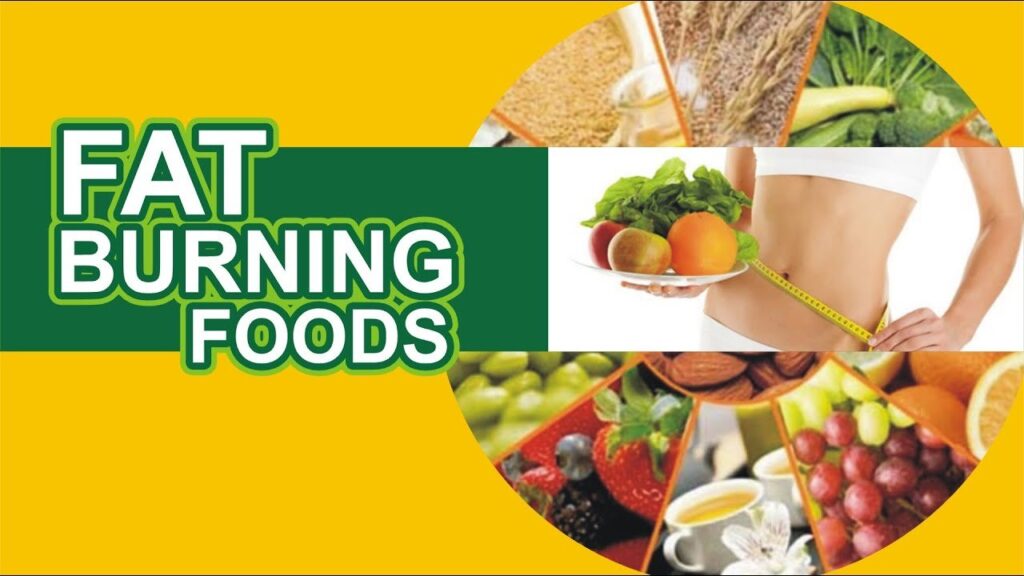
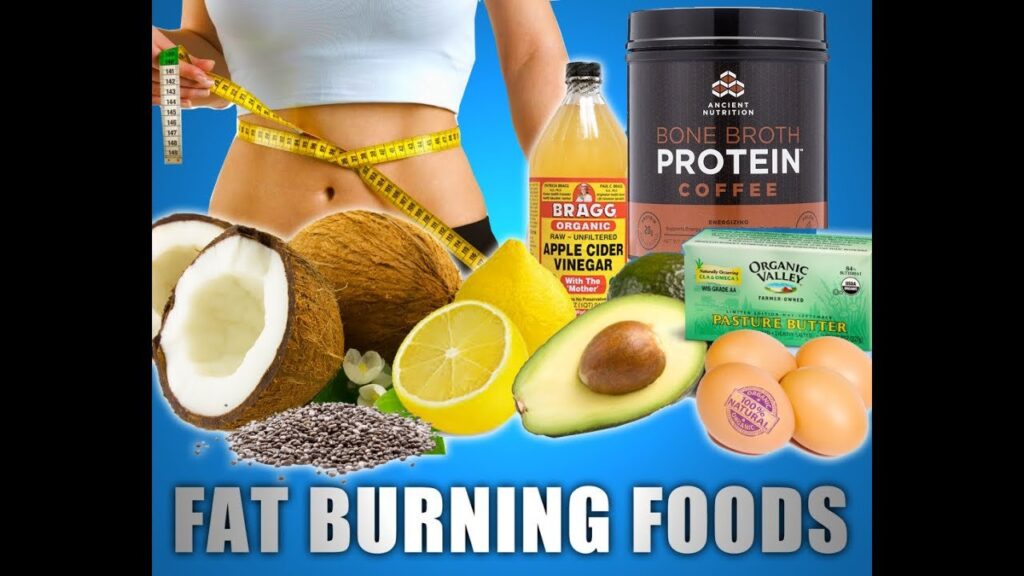
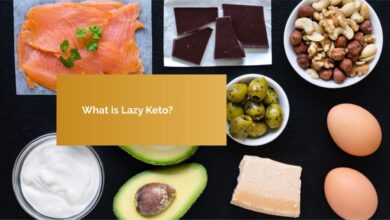


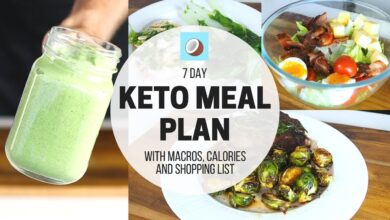
One Comment